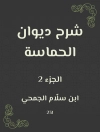G. K. Chesterton’s collection, ‘Poems, ‘ showcases the author’s profound ability to weave intricate themes of faith, wonder, and the human experience into lyrical verse. Characterized by his masterful use of wit and paradox, Chesterton’s poetry invites readers into a world where the ordinary transforms into the extraordinary. The collection reflects the rich tradition of English literature, influenced by Victorian sentiments yet simultaneously embracing modern themes, creating a bridge between the two eras. His vivid imagery and playful yet philosophical tone underscore a quest for meaning amidst the chaos of life, making this work a crucial reflection of its time. G. K. Chesterton (1874-1936), a prolific writer, philosopher, and theologian, brought a unique perspective to early 20th-century literature. His deep Catholic faith and sharp intellect motivated him to explore the spiritual dimensions of existence, often challenging the conventions of society through his writing. The roots of Chesterton’s distinctive style can be attributed to his wide-ranging interests, including theology, philosophy, and social commentary, which significantly influenced his poetic voice and thematic concerns. For readers seeking a thought-provoking blend of imagination and insight, ‘Poems’ is an essential exploration of life’s complexities, rendered in Chesterton’s engaging and accessible style. This collection not only showcases Chesterton’s poetic prowess but also serves as a testament to his enduring relevance in discussions about morality and the human condition.
Mengenai Pengarang
Gilbert Keith Chesterton (1874–1936) was a prolific English writer of the early 20th century, whose work encompasses a vast range of genres, including journalism, philosophy, poetry, biography, fantasy, and detective fiction. Renowned for his sharp wit, towering physical stature, and brilliant intellect, Chesterton is perhaps best remembered for the creation of the priest-detective character Father Brown. His body of work is typified by a profound allegiance to Christian orthodoxy, paradoxical and satirical style, and a preoccupation with the spiritual journey of man within the modern world. Though he remains known for classic works such as ‘The Man Who Was Thursday’ and his apologetic masterpiece ‘Orthodoxy, ‘ his contributions to poetry are marked by the same acerbic wit and lyrical eloquence. His simply titled collection, ‘Poems’ (1915), is a testament to his poetic prowess, showcasing his ability to mingle the narrative with the lyrical, encapsulating both the levity and weightiness of life. Whether through verse or prose, Chesterton’s influence extends well beyond his lifetime, ingraining him as a seminal figure in English literature. His anecdotal style, often embedding profound truths within seemingly simple tales, continues to capture readers and affirm his position as a literary giant.












